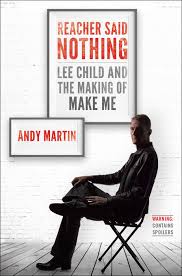 I recently had a reader comment, “I noticed most of your characters are tea drinkers. Is that because you are?”
I recently had a reader comment, “I noticed most of your characters are tea drinkers. Is that because you are?”
I said yes. Here’s the expanded answer…
I’m allergic to coffee. So, I have no frame of reference for it. None. I’ve never stepped foot inside Starbucks. Wouldn’t even know what one looked like, never mind the sights and smells inside. When my son and daughter-in-law rattle off half-cap, blah, blah, blah, with a shot of blah, blah, blah, they may as well be speaking a foreign language. They’d gain the same reaction from me—a blank stare, my eyes glazed over.
Now, I’ve never serial killed, either, but neither have my readers (I hope). Coffee is too well-known for me to fake it. And let’s face it, we live in a coffee-rich environment, where it’s one of the most popular products on the market. Even if I researched the subject to death, I’m bound to screw up a minor detail. And nothing tears a reader out of a story faster than a mistake about something they know well. The few times I’ve ever even mentioned coffee, I got in and out in one sentence.
I’m not a wine connoisseur, yet Mayhem is. The difference is, I’ve tasted wine. Many wines. 😉 It’s not a favorite of mine, but at least I have some frame of reference. Mayhem is also well-versed in fine dining, and I’m not. But the average reader won’t spend $500-$1,000 on one meal, either. For those that do, I listen to my editor, who not only knows her wine but has made almost all of the fancy dishes I’ve included in my books. When she says that appetizer doesn’t go well with this meal, I change it. No questions asked.
I love how she handles it, too. The comment will read something like, “Mm-mm, sounds yummy… but you know what works better with that dish? Blah, blah, blah.” Or “Yum, but that dish isn’t typically made with cream. It’s made with blah, blah, blah.” Cracks me up every time!
Know your limits. It’s okay to include a detail you’re unfamiliar with if you’re willing to reach out to consultants to check your scene. If you get it wrong, don’t be too stubborn to fix it. We can’t know everything.
You might be thinking, “Why don’t you ask someone about coffee?” It wouldn’t work. I’d have to follow a coffee drinker around to figure out the tiny details they don’t even consider. Things like:
- How do you order? In the movies it looks complicated.
- How does it feel to wait in line for your morning coffee?
- What if they run out of your favorite? Then what?
- Does everyone have a backup flavor?
- What’s the difference between flavor and brew?
- When is the right time of day to switch from hot to iced?
- Does iced taste different from hot? How so?
- What do all those pumps do?
- What do those cap things mean?
- Do you get jittery afterward?
- Do you get tired without it?
- How many cups is enough? How many is too much?
- What does it taste like? (Describe coffee to someone with no frame of reference)
- Is it an addiction or pleasure? Or both?
- How did you decide on half-caps and pumps? What did that transition look like?
- Does everyone start out drinking it black?
- Why is espresso served in a tiny cup?
- Is espresso different from regular coffee? I know it’s stronger, but why?
- Is coffee measured by caffeine? Quality of beans?
- What about cappuccino? How is that different from regular?
- How do they draw those little hearts on top?
- Do baristas use special tools? What do those look like? Do they get hot? Cold?
- Why are coffee shops so popular?
- Why do people hang out in coffee shops? Is it a social thing?
- Why do the sound of coffee shops soothe some people?
- Describe the sound and smells of Starbucks.
- How long would you wait in line for your favorite coffee?
- Why can’t you make it at home?
- How much do the fancy coffees cost per cup?
- Is iced cheaper than hot? Or vice versa? And why.
I could go on and on. There are too many variables with coffee.
Anyone want to take a crack at any of my questions? Try describing the taste to me.

